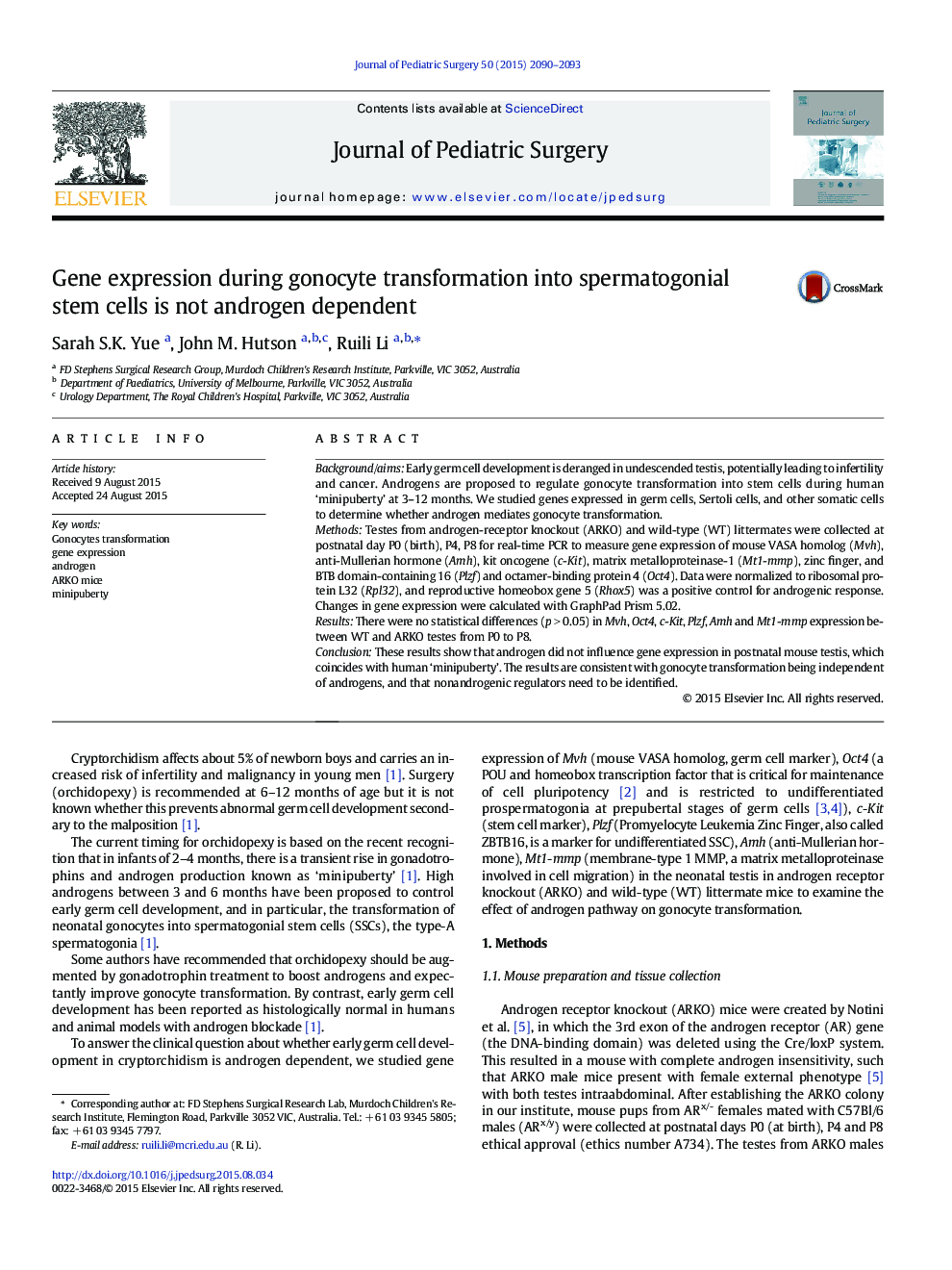| کد مقاله | کد نشریه | سال انتشار | مقاله انگلیسی | نسخه تمام متن |
|---|---|---|---|---|
| 6216735 | 1607093 | 2015 | 4 صفحه PDF | دانلود رایگان |
Background/aimsEarly germ cell development is deranged in undescended testis, potentially leading to infertility and cancer. Androgens are proposed to regulate gonocyte transformation into stem cells during human 'minipuberty' at 3-12 months. We studied genes expressed in germ cells, Sertoli cells, and other somatic cells to determine whether androgen mediates gonocyte transformation.MethodsTestes from androgen-receptor knockout (ARKO) and wild-type (WT) littermates were collected at postnatal day P0 (birth), P4, P8 for real-time PCR to measure gene expression of mouse VASA homolog (Mvh), anti-Mullerian hormone (Amh), kit oncogene (c-Kit), matrix metalloproteinase-1 (Mt1-mmp), zinc finger, and BTB domain-containing 16 (Plzf) and octamer-binding protein 4 (Oct4). Data were normalized to ribosomal protein L32 (Rpl32), and reproductive homeobox gene 5 (Rhox5) was a positive control for androgenic response. Changes in gene expression were calculated with GraphPad Prism 5.02.ResultsThere were no statistical differences (p > 0.05) in Mvh, Oct4, c-Kit, Plzf, Amh and Mt1-mmp expression between WT and ARKO testes from P0 to P8.ConclusionThese results show that androgen did not influence gene expression in postnatal mouse testis, which coincides with human 'minipuberty'. The results are consistent with gonocyte transformation being independent of androgens, and that nonandrogenic regulators need to be identified.
Journal: Journal of Pediatric Surgery - Volume 50, Issue 12, December 2015, Pages 2090-2093
